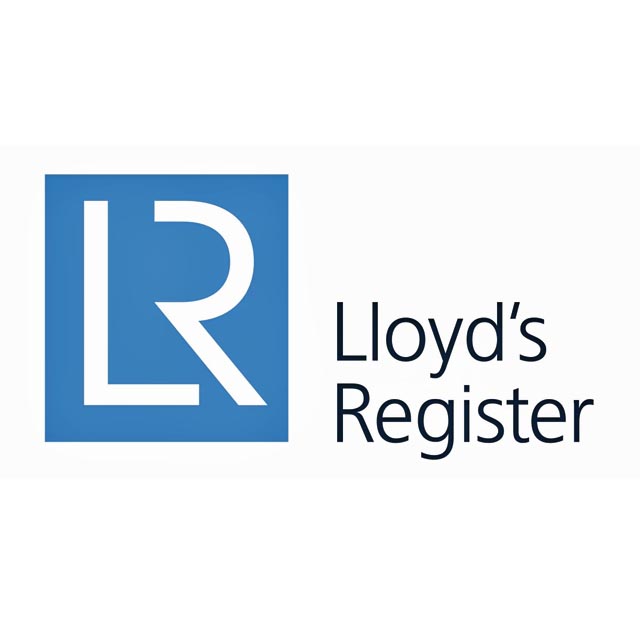Lloyd’s Register (LR) believes that a recent organic chloride incident in Singapore, where the external contamination of marine fuel oil rendered the fuel unacceptable for use, is a cause for concern to ship operators and the industry as a whole.
Several cases of organic chloride contamination were reported by ships bunkering High Sulphur Fuel Oil (HSFO) from Singapore in February. They have led to various operational problems onboard such as sludging at purifiers, blocked filters, corrosive wear of fuel pumps and injectors and other damage to fuel oil system components.
Naeem Javaid, Global Operations Manager – Fuel Oil Bunker Advisory Services (FOBAS), said: “To contextualise the problem, marine fuels are bought and sold mostly under the international fuel standard ISO 8217. This sets a number of descriptive parameters, such as maximum limits on viscosity, density, water and catalytic fines content, but doesn’t include descriptions of all the possible impurities or contamination that might cause an adverse reaction to the ship’s machinery plant and thus should not be in the fuel. These are covered under Clause 5 of ISO 8217, which goes on to say that ‘fuel should be free from any material that renders the fuel unacceptable for use and… If damage has shown to be the case, then the fuel has failed to meet the ISO 8217 in its entirety’.”
Furthermore MARPOL Annex VI states that fuel should not contain any added substance or chemical waste that jeopardises the safety of the ship, adversely affects performance of machinery or harmful to personnel or environment.
Javaid continued: “It is also important to remember that residual marine fuels are not one of the refined products from the petroleum refining process. The residual fuels supplied to the ship are a blend of residual fuel and other feedstocks from the main refinery products that are then formulated to meet the requirements of ISO 8217 for use on ships. This gives enough flexibility to marine fuel oil suppliers to produce fuels for the marine market but this flexibility can result in a lack of bunker fuel oil quality management control in the supply chain, leading to an increased risk of unacceptable blend products being used for the formulation of these fuels, such as in this case of the organic chlorides found in HSFO bunkers.”
Organic chlorides – compounds containing carbon and chloride bonds – do not naturally occur in crude oils and are typically the result of additives used in oil recovery as a detergent. These have different boiling points and under temperature and pressure conditions, organic chlorides can decompose to hydrochloric acid, specifically in the presence of water, leading to the corrosion and damage of the fuel system equipment. Some organic chlorides have the property to harden the metallic surfaces making surfaces prone to erosion, possibly due to lower boiling points of these volatile organic compounds, they could vaporise off within a fuel service system and remove the lubrication on metallic surfaces, causing scuffing and cavitation, leading to reduce engine performance and, in the worst case, total loss of power.
“This is an important cause for concern, because an uninterrupted supply to engine and functional fuel injection equipment are vital for keeping a ship running. Any damage can compromise the safe navigation of the vessel, putting the ship’s cargo and personnel onboard at much higher risk. Furthermore, in some recent incidents, vessels have experienced a complete loss of power because of a failure of all fuel injection systems onboard ship caused by these chlorides,” said Javaid.
On the face of it, recent contaminated fuels comply with the initial suite of ISO 8217 table 1 or 2 tests prescriptive limits. However, based on the operational feedback from ships, the fuel would seem not to have met the ISO 8217 requirements in their entirety under Clause 5. FOBAS has therefore adopted more detailed testing using GC/MS (Gas Chromatography/Mass Spectrometry) analysis to identify different types of organic chlorides present. Ships can then be alerted not to use these fuels. Secondly, using initial prescriptive analysis, LR has identified some properties that are specific to these contaminated bunkers – based on which LR identified vessels bunkered with the same fuel – and has alerted them not to use same fuels. Thirdly, LR is working with industry stakeholders, such as ISO and CIMAC, to accelerate the process of getting these specific organic chlorides included into the more-detailed standardised test of ASTM D7845, so they are universally accepted to make tests and results acceptable for all parties.
LR is raising awareness of the legal and contractual obligations and is liaising with fuel suppliers and port states, and participating in industry forums to stress the need to have a robust bunker quality management system throughout the marine fuels value chain.



